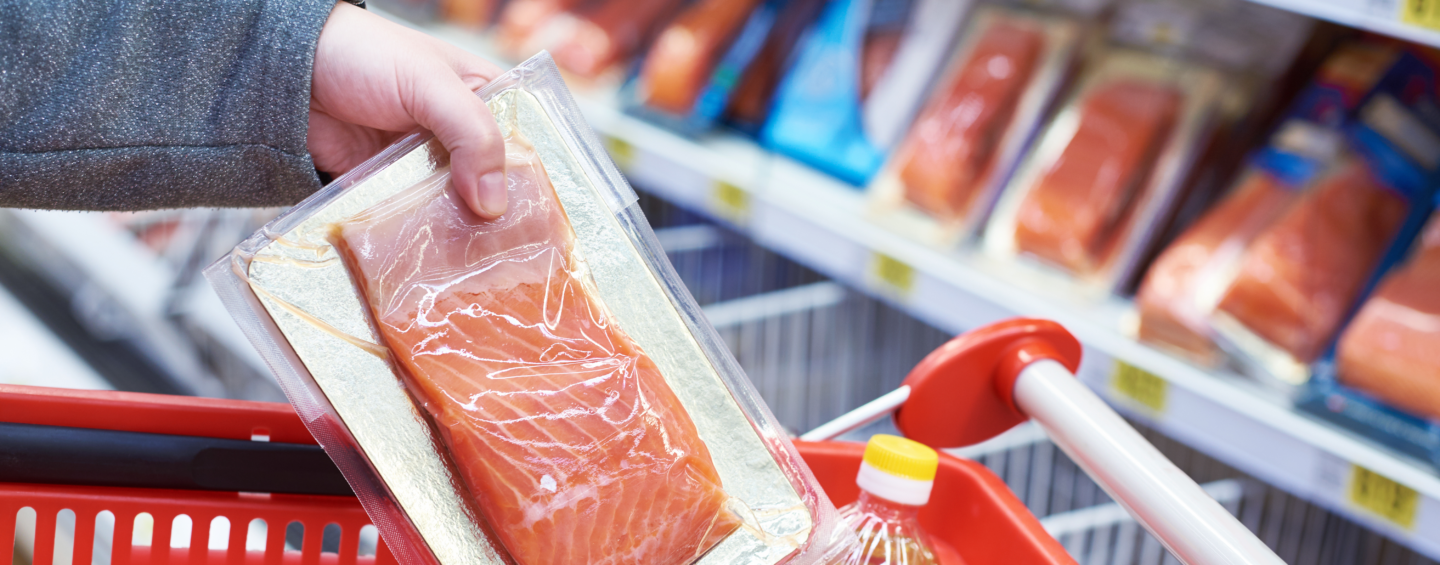If you love the ocean and want to protect marine wildlife, then you should buy your food from retailers who are supporting fisheries improvements worldwide. While others might tell you to stop eating fish, or to only eat certified fish, the most impactful thing you can do is actually to amplify your concern about the oceans by going to the source of your seafood – the supermarkets where you shop and the restaurants where you eat. And start asking questions.
The US and Europe are two of the largest buyers and importers of seafood globally, and retailers and foodservice companies wield tremendous leverage to demand improvements. So, the biggest contribution you can make as an individual is not to give up seafood; the most important thing you can do is ask the manager at your local store what they are doing to improve fisheries worldwide. If they don’t know, ask to talk to the head seafood buyer, or the head of sustainability.
If you’re in the US or the UK and shop at any of SFP’s industry partners, they will have a good answer to that question. They’ll send you to their Ocean Disclosure Project page, where they list all the fisheries they buy from, and from there, you can click through to FishSource profiles of each fishery to learn more about their sustainability issues and see updates on the progress of their fisheries improvement projects. You will also find information on the supermarket’s own website about how they’ve worked with their seafood suppliers to improve fisheries.
What you will see is that a lot of these fisheries aren’t perfect, and that some of the improvement projects aren’t yet addressing every issue they should or aren’t making progress fast enough. But don’t despair. Instead, ask the buyers and sustainability heads to do even more to help make critical needed improvements. And if your retailer is not yet on board, don’t give up – a lot of their suppliers are already making improvements, even if the retailers don’t yet know it. Even small local retailers can make a difference, by preferentially sourcing from the suppliers who are leading improvement efforts.
The good news is, we already know how to protect the oceans and marine wildlife, and it doesn’t have to mean the end of fishing. We need to protect at least 30 percent of every marine habitat in as near pristine condition as possible. We need to properly deploy known fisheries science and management to stop illegal fishing and overfishing. And we need to make sure that all fishing boats use existing best practices to stop the wasteful and pointless killing of marine mammals, sea birds, sharks and rays, turtles, and other vulnerable species.
By all means, buy certified fish from fisheries that already do all these things, but don’t ask your retailer to stop stocking uncertified fish. We can’t abandon the fisheries that need the most help. We need to persuade the seafood industry to roll up their sleeves and get to work to help them improve. If the markets that have the best sustainability standards refuse to buy from poorly performing fisheries, those fisheries will just take their business elsewhere – and their next customers may not care much about protecting the oceans. Rather than boycotting these fisheries, we should engage with them to fix their problems and help them achieve sustainability. So ask your supermarket to help those fisheries improve, so they too can become certified in the future.
Whether you eat fish or not is your choice. But it is important to remember that not everybody has the information, the motivation, or the luxury to make such a choice. There are billions of people who are reliant on the oceans in some way for their livelihoods and their food, and too few are willing – or, more importantly, able – to give those things up to protect the oceans. So if you care about the oceans and marine wildlife, know that whether you personally avoid fish or not won’t do much to help. But if you can help persuade all the retailers around you to work with their suppliers to improve all the fisheries they source from, then you’ve amplified your influence thousands of times over, and you will have done a lot to help save our oceans.
Jim Cannon is the founder and CEO of Sustainable Fisheries Partnership.

